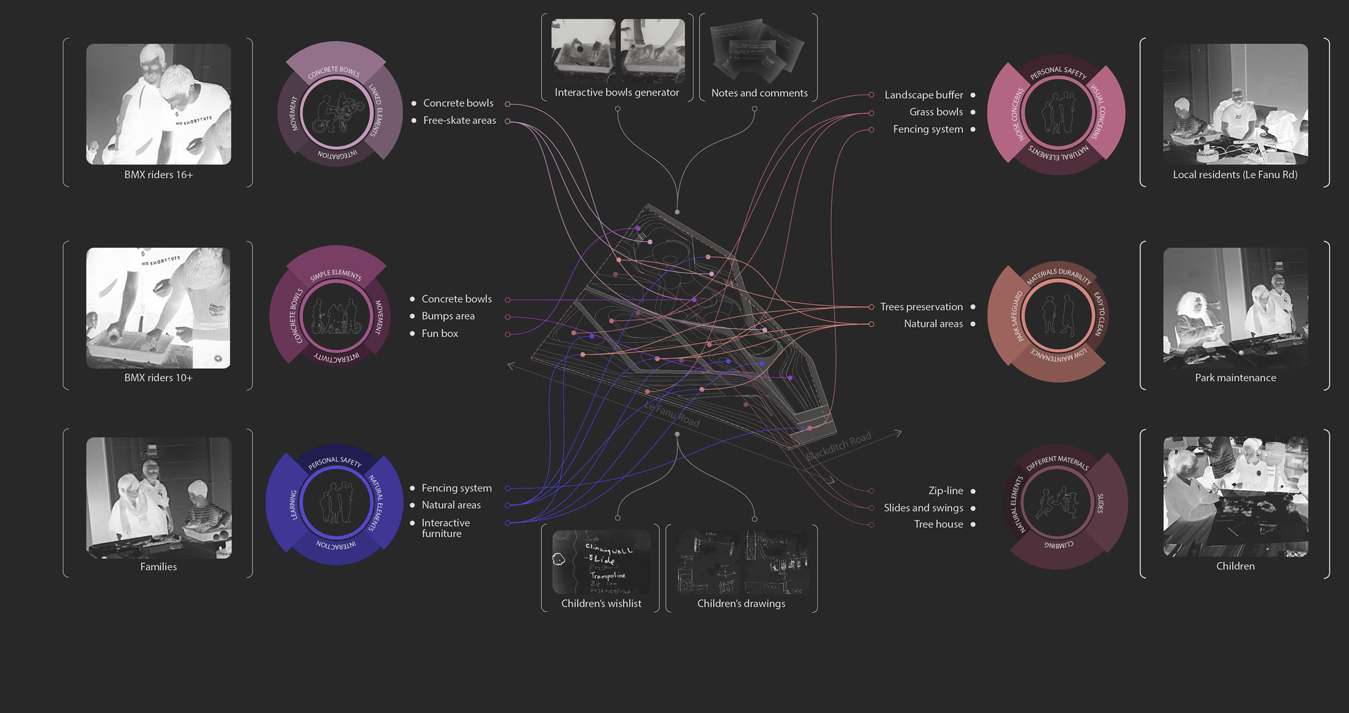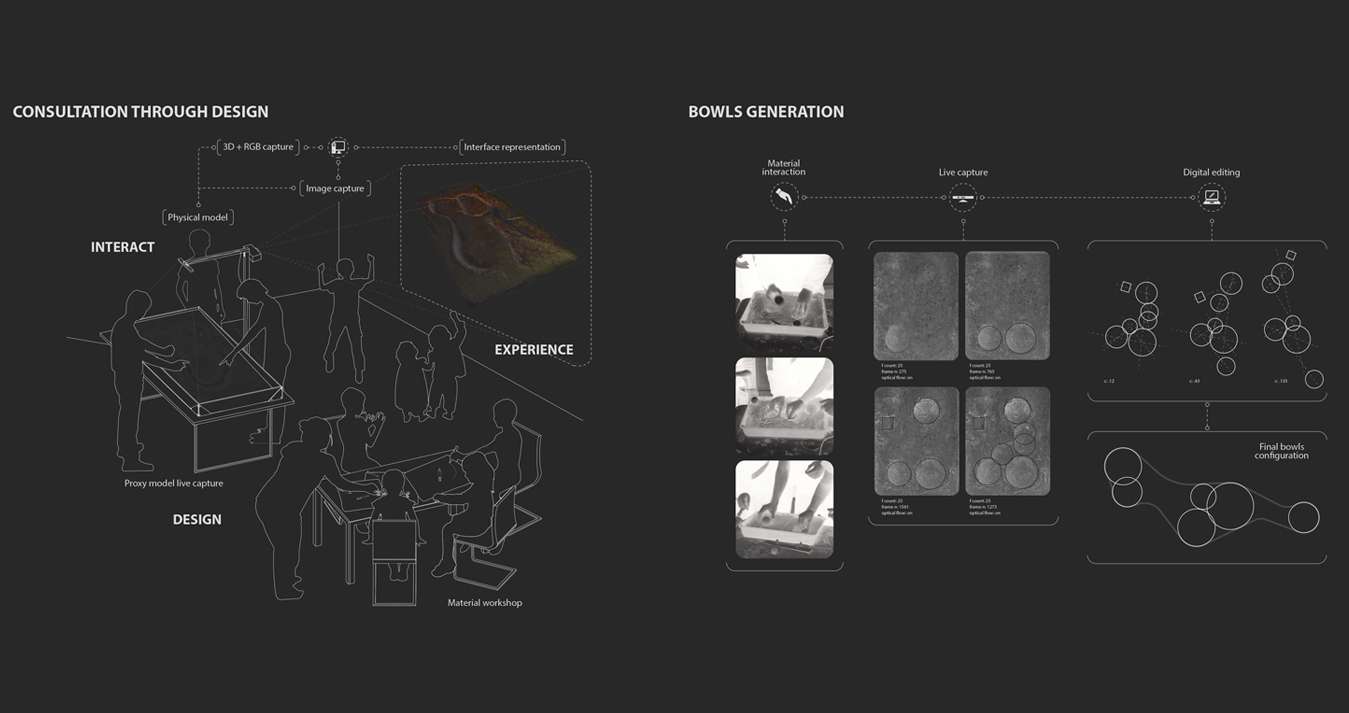
Relational Urban Model: Le Fanu Skate and Play Park
The design posed the challenge of enabling local communities have a say in the design process in order to satisfy demands for safety, noise control and landscape impact, previously raised by residents during initial consultation stages. The two-stage competition included an intermediate consultation phase which Relational Urbanism design team used to deploy innovative tools for participation. These consisted in a skate park modelling – digitizing environment made up of a sandbox and 3D cloud capturing via Kinect. Participants could model with their hand the skate park they wanted with simple tools (wooden spheres, cylinders and small trowels). These models were later captured and brought into a 3D model which ultimately formed part of the overall proposal. The use of the modelling tool was deemed a success during the participatory event, where different members of the BMX community being actively engaged in the design process. This also encouraged senior members of the community to bring their views on safety and pedestrian issues. Similar events also took place in local schools, giving younger members of the community bring their ideas about paly spaces.
The tool opened conversations of what constitutes a good integration between skate and play landscapes in public space. Details of skate bowls (spines, main layout) were understood via the use of the model. Landscape mounds to mitigate noise and visual impact were incorporated as well as changes in the overall park layout to secure visual connection of play areas to avoid issues of anti-social behavior.
- [FIRST PRIZE]
- [category] Research Projects
- [institution] The Irish Architectural Foundation, Dublin City Council and The Madesson Foundation
- [year] 2016
- [Leaders] Enriqueta Llabres and Eduardo Rico
- [Team] Relational Urbanism (Landscape Design and Design Leader), Levins (cost consultant), Robert Barry (civil engineering) and McElligot (M&E). The client is Dublin City Council developing the project with funding contribution from the Matheson Foundation. The contractor is C&A and the Skate park specialist is Freestyle. The consultation and competition process was organized by Irish Architecture Foundation.
Relational Urban Model: Le Fanu Skate and Play Park
The design posed the challenge of enabling local communities have a say in the design process in order to satisfy demands for safety, noise control and landscape impact, previously raised by residents during initial consultation stages. The two-stage competition included an intermediate consultation phase which Relational Urbanism design team used to deploy innovative tools for participation. These consisted in a skate park modelling – digitizing environment made up of a sandbox and 3D cloud capturing via Kinect. Participants could model with their hand the skate park they wanted with simple tools (wooden spheres, cylinders and small trowels). These models were later captured and brought into a 3D model which ultimately formed part of the overall proposal. The use of the modelling tool was deemed a success during the participatory event, where different members of the BMX community being actively engaged in the design process. This also encouraged senior members of the community to bring their views on safety and pedestrian issues. Similar events also took place in local schools, giving younger members of the community bring their ideas about paly spaces.
The tool opened conversations of what constitutes a good integration between skate and play landscapes in public space. Details of skate bowls (spines, main layout) were understood via the use of the model. Landscape mounds to mitigate noise and visual impact were incorporated as well as changes in the overall park layout to secure visual connection of play areas to avoid issues of anti-social behavior.



